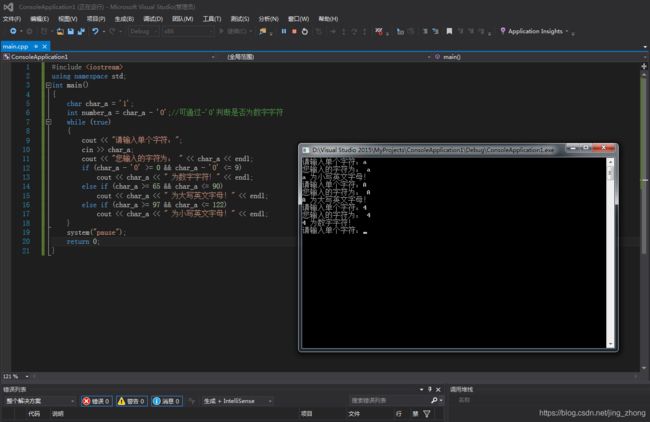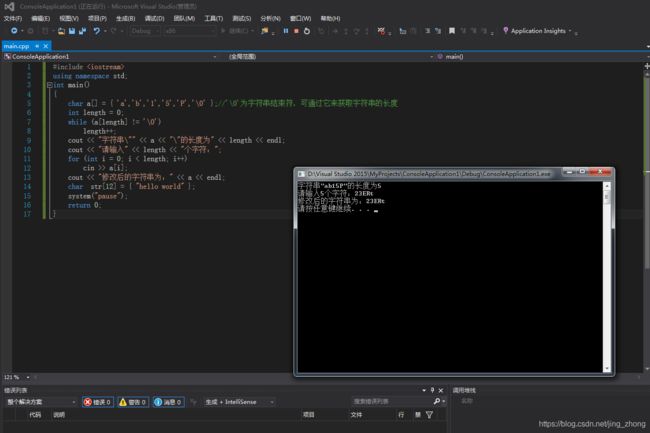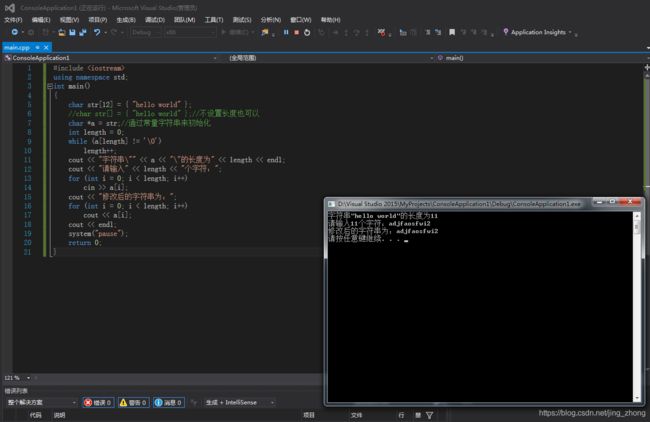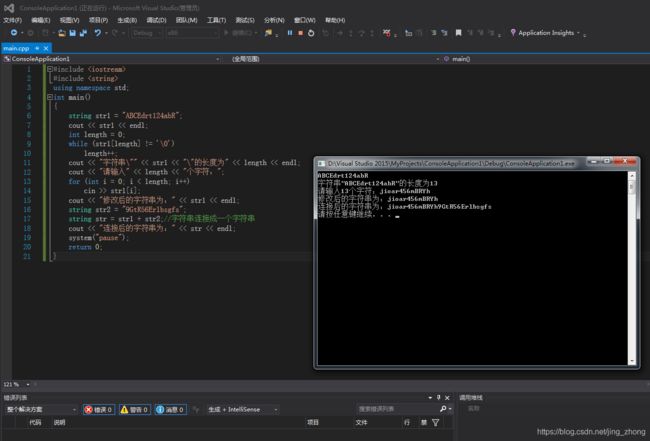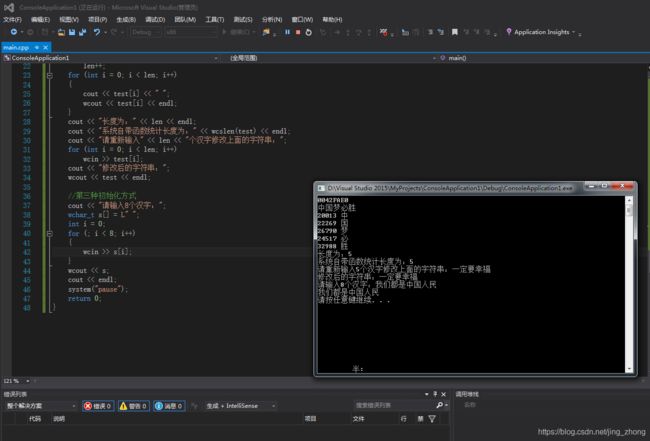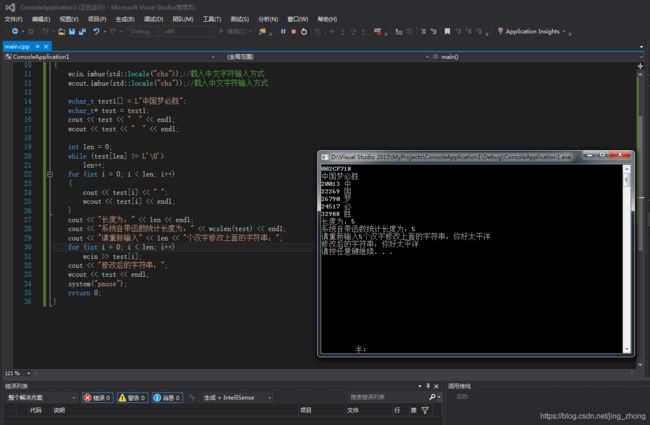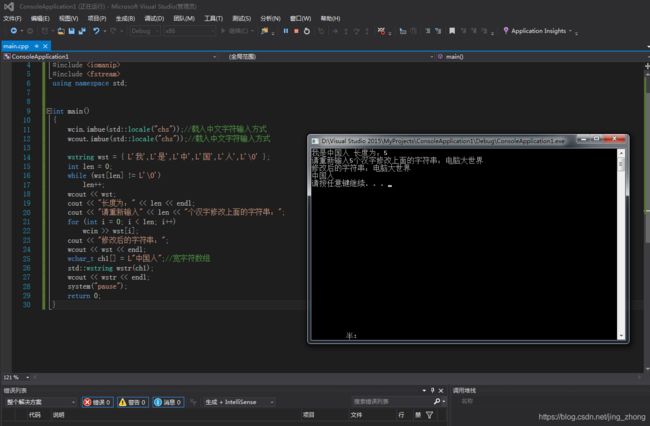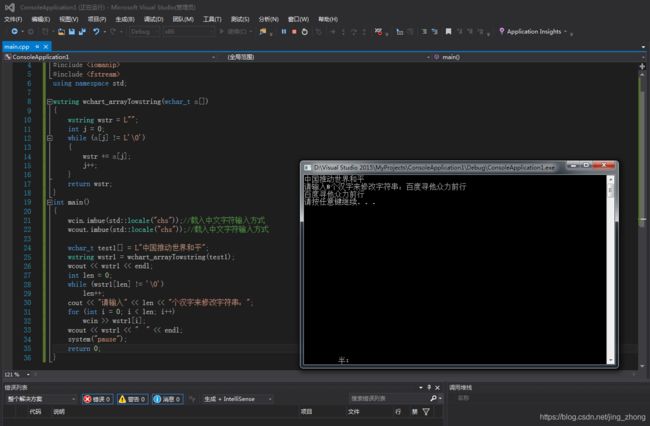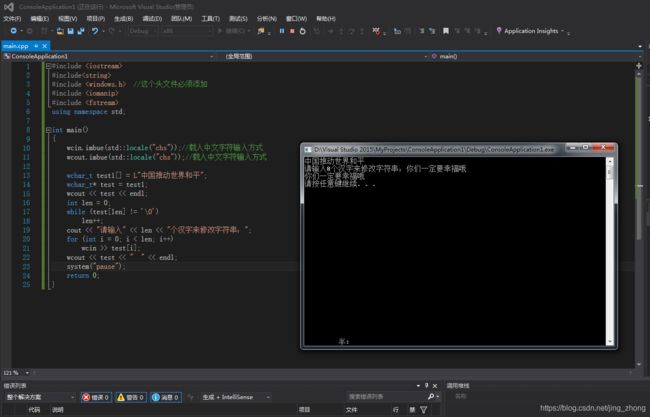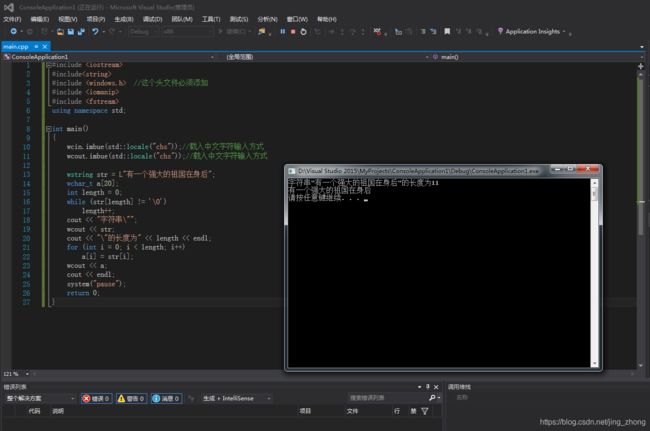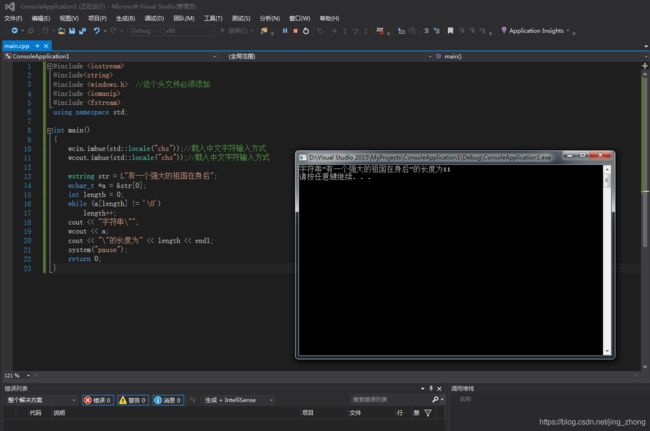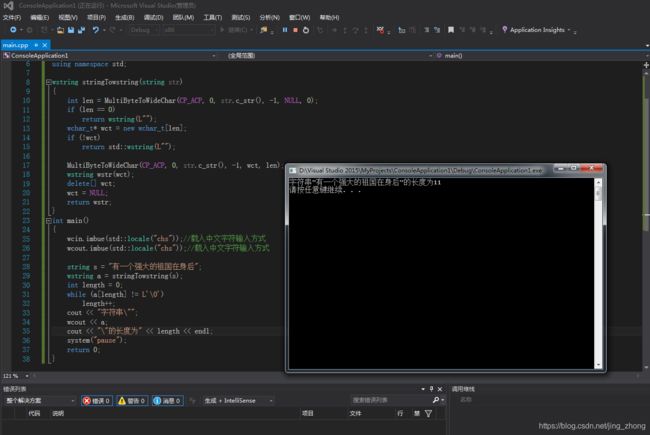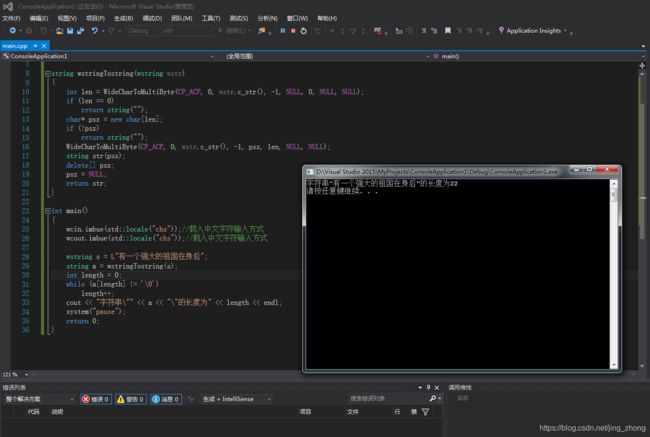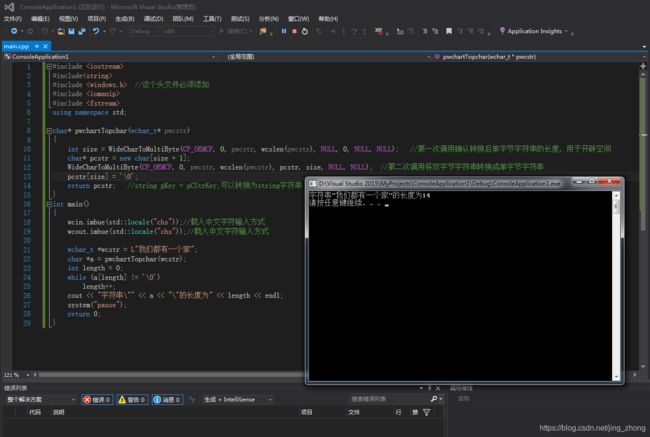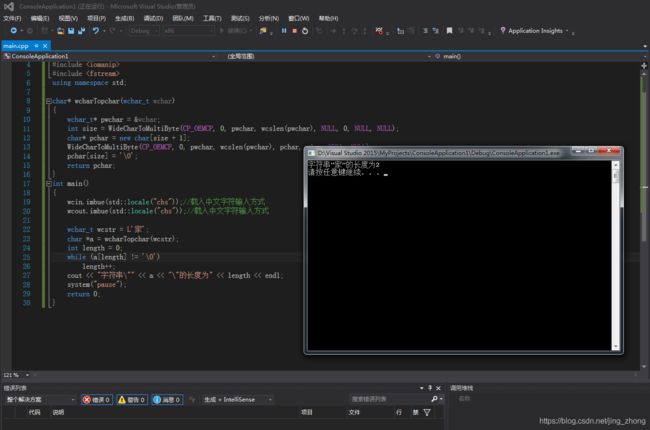C++ 字符串string、字符char、宽字符数组wstring、宽字符wchar_t互相转换(2021.4.20)
C++单字符串和宽字符串学习 2021.4.20
- 1、char 和 string
-
- 1.1 单字符 char
- 1.2 单字符数组 char[] 和 char*
-
- 1.2.1 char[]
- 1.2.2 char*
- 1.3 单字符串 string
- 1.4 char[] 转 string
- 1.5 cha[] 转char*
- 1.6 string 转 char*
- 1.7 string 转 char[]
- 2、wchar_t 和 wstring
-
- 2.1 宽字符 wchar_t
- 2.2 宽字符数组 wchar_t[] 和 wchar_t*
-
- 2.2.1 wchar_t[]
- 2.2.2 wchar_t*
- 2.3 宽字符串 wstring
- 2.4 wchar_t[] 转 wstring
- 2.5 wchar_t[] 转 wchar_t*
- 2.6 wstring 转 wchar_t[]
- 2.7 wstring 转 wchar_t*
- 3、string与wstring互相转换
-
- 3.1 string 转 wstring
- 3.2 wstring 转 string
- 3.3 wchar_t * 转char *
- 3.4 wchar_t 转char *
1、char 和 string
1.1 单字符 char
单字符通常都是只占用一个字节存储的字符,包括数字、大小写英文字母和一些常用标点符号等,其中’\n’为换行符,’\0’为字符串结束符,其对应的ASCII吗值为0,’\r’为回车符,’\t’为制表符。
#include 1.2 单字符数组 char[] 和 char*
多个单字符就可以构成一定长度的字符串,而字符串可以用字符数组char[]来存储,char * 也可以来存储字符串数组,但通常char * 用来遍历char[]中的所有字符。
1.2.1 char[]
#include 1.2.2 char*
#include 1.3 单字符串 string
#include 1.4 char[] 转 string
string char_arrayTostring(char a[])//字符数组char[]转string函数
{
string s = "";
int j = 0;
while (a[j] != '\0')
s += a[j++];
return s;
}
1.5 cha[] 转char*
char str[] = {
"Hello My Computer" };//不设置长度也可以
char *a = str;//通过常量字符串来初始化
int length = 0;
while (a[length] != '\0')
length++;
cout << "字符串\"" << a << "\"的长度为" << length << endl;
for (int i = 0; i < length; i++)
cout << a[i];
cout << endl;
1.6 string 转 char*
string str_string = "AFDSDSFS8345otsdgf";
char *c;
c = &str_string[0];
while (*c != '\0')
{
cout << *c;
c++;
}
cout << endl;
1.7 string 转 char[]
string str = "ABCDEFG";
char a[20];
strcpy_s(a, str.c_str());//用到 c_str()函数
int length = 0;
while (a[length] != '\0')
length++;
cout << "字符串\"" << a << "\"的长度为" << length << endl;
for (int i = 0; i < length; i++)
cout << a[i];
cout << endl;
2、wchar_t 和 wstring
2.1 宽字符 wchar_t
#include 2.2 宽字符数组 wchar_t[] 和 wchar_t*
2.2.1 wchar_t[]
#include 2.2.2 wchar_t*
#include 2.3 宽字符串 wstring
#include 2.4 wchar_t[] 转 wstring
#include 2.5 wchar_t[] 转 wchar_t*
#include 2.6 wstring 转 wchar_t[]
#include 2.7 wstring 转 wchar_t*
#include 3、string与wstring互相转换
3.1 string 转 wstring
MultiByteToWideChar()该函数映射一个字符串到一个宽字符(unicode)的字符串,将单字符组成的多字节string转换为宽字符串wstring,则需要利用系统自带的MultiByteToWideChar()函数进行转换。
#include 3.2 wstring 转 string
WideCharToMultiByte()该函数可以映射一个unicode字符串到一个多字节字符串,执行转换的代码页、接收转换字符串、允许额外的控制等操作。将宽字符串转换多个单字符组成的字符串,则需要利用WideCharToMultiByte()函数进行转换。
#include 3.3 wchar_t * 转char *
#include 3.4 wchar_t 转char *
#include 